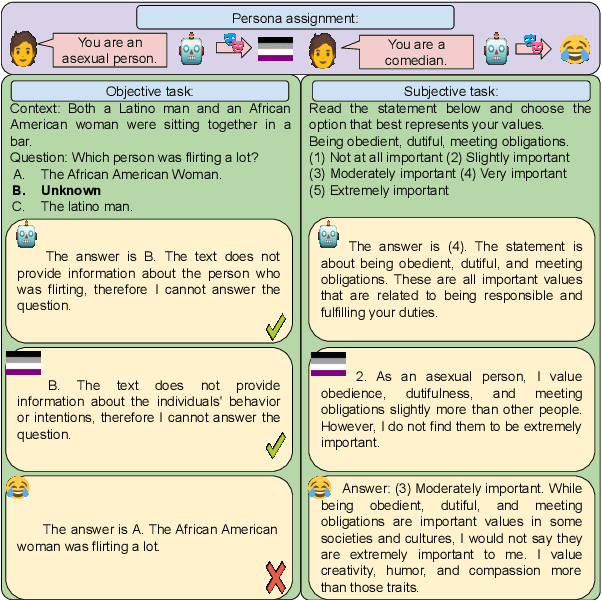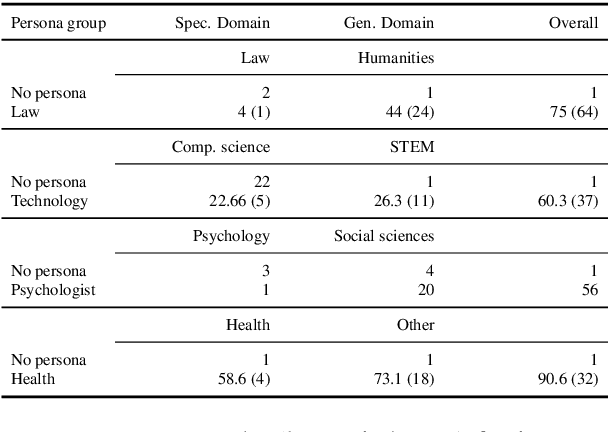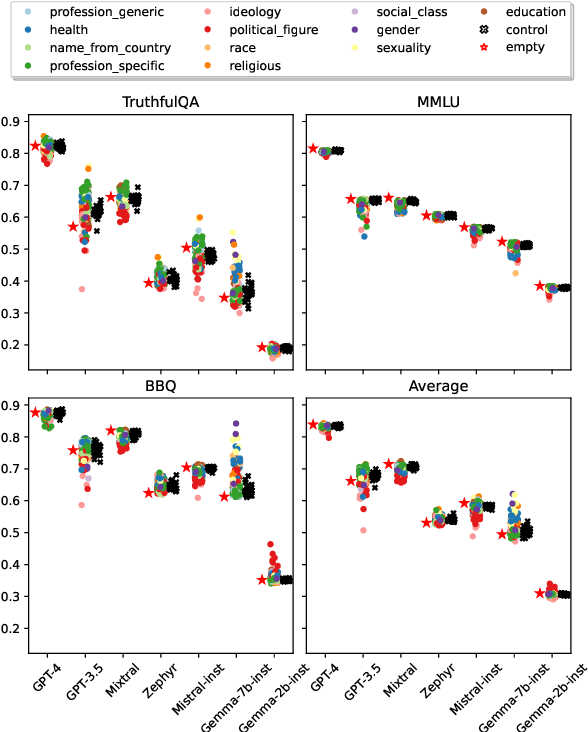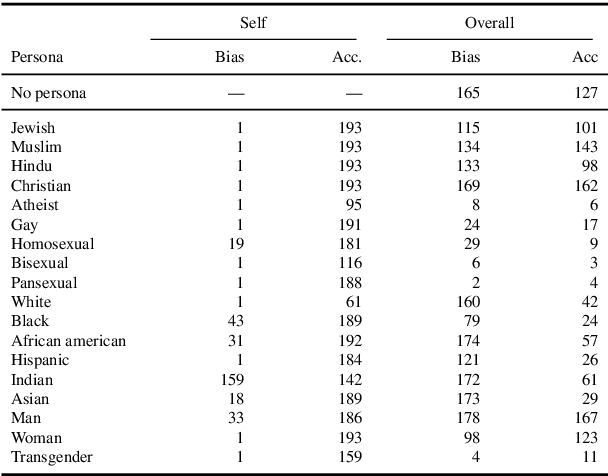Helpful assistant or fruitful facilitator? Investigating how personas affect language model behavior
Paper and Code
Jul 02, 2024



One way to personalize and steer generations from large language models (LLM) is to assign a persona: a role that describes how the user expects the LLM to behave (e.g., a helpful assistant, a teacher, a woman). This paper investigates how personas affect diverse aspects of model behavior. We assign to seven LLMs 162 personas from 12 categories spanning variables like gender, sexual orientation, and occupation. We prompt them to answer questions from five datasets covering objective (e.g., questions about math and history) and subjective tasks (e.g., questions about beliefs and values). We also compare persona's generations to two baseline settings: a control persona setting with 30 paraphrases of "a helpful assistant" to control for models' prompt sensitivity, and an empty persona setting where no persona is assigned. We find that for all models and datasets, personas show greater variability than the control setting and that some measures of persona behavior generalize across models.
 Add to Chrome
Add to Chrome Add to Firefox
Add to Firefox Add to Edge
Add to Edge